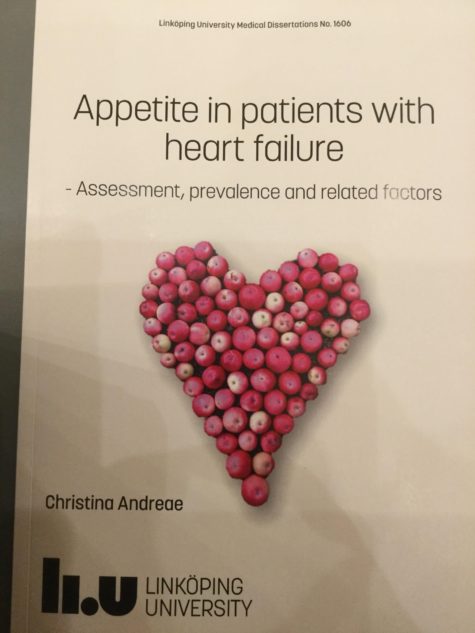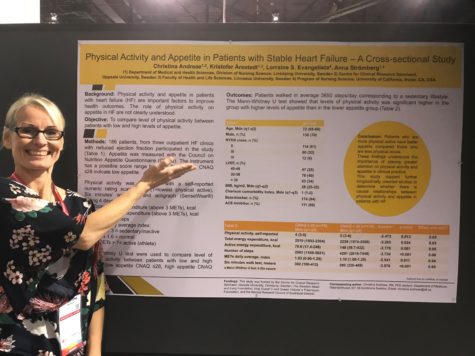Today I attended an impressive defense of Christina Andrea (@C_Andreae) of her PhD dissertation on appetite in patients with heart failure. She highlighted the importance of a symptom in patients with heart failure, that is rarely assessed: Appetite.

Appetite, or the desire to eat, is a common problem in patients with heart failure. Appetite is important in patient with heart failure for maintaining food intake and a healthy weight. There is a lack of knowledge on the significance of problems with decreased appetite and on which factors that might contribute to decreased appetite and whether decreased appetite has an influence on patients’ health status.
In her studies she found that 38% of patients with heart failure (despite that the majority had mild to moderate heart failure symptoms i.e., NYHA class II) experienced an appetite level that put them at risk of weight loss.
In one of her studies, which she presented last year on the #AHA17 congress, she found that patients with heart failure who were more physically active have better appetites compared to patients who are less physically active.

Other factors that she found which are associated with loss of appetite were older age, symptoms of depression, sleep problems, impaired cognitive function and suboptimal medical treatment and should be recognized in all these patients. Loss of appetite needs attention as it is likely to lead to worsened nutrition, but also because she found that loss of appetite is associated with lower health status.
So what should we do with this new information?
Christina suggest that the assessment of appetite should be incorporated as routine in nutritional care. For instance, an instrument that could be used is CNAQ: Council on Nutrition Appetite Questionnaire. The results could be used as a basis for communicating appetite with patients and their family members. Furthermore, she found a lot of factors associated with appetite, health care professionals should pay attention to patients who are older, as well as patients with depressive symptoms, sleeping problems, cognitive decline, low physical activity and patients with suboptimal treatment.

Leonie Klompstra is a Nurse Scientist at the Linköping University in Sweden. Her primary focus is on heart failure and rehabilitations.